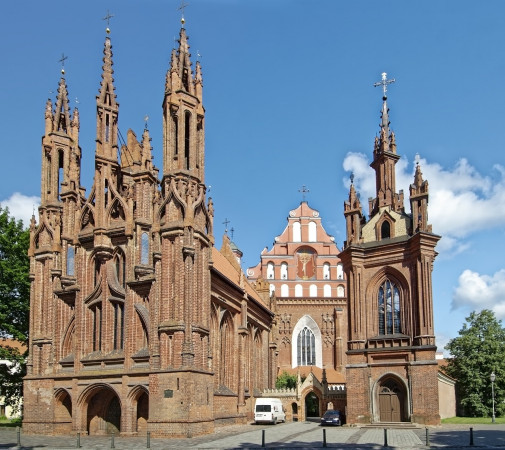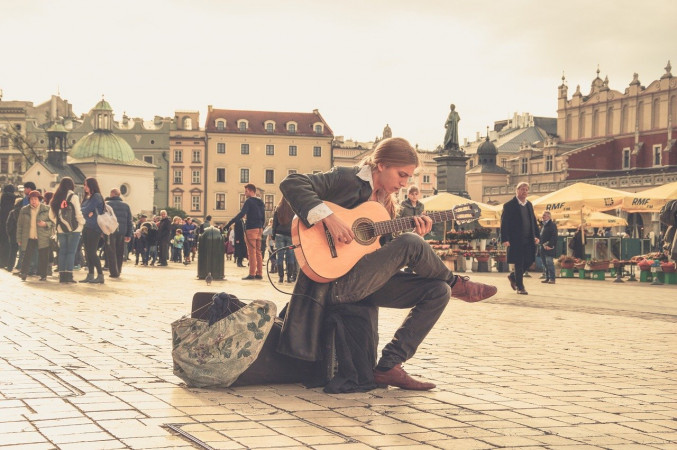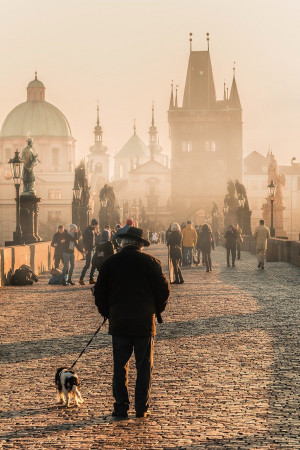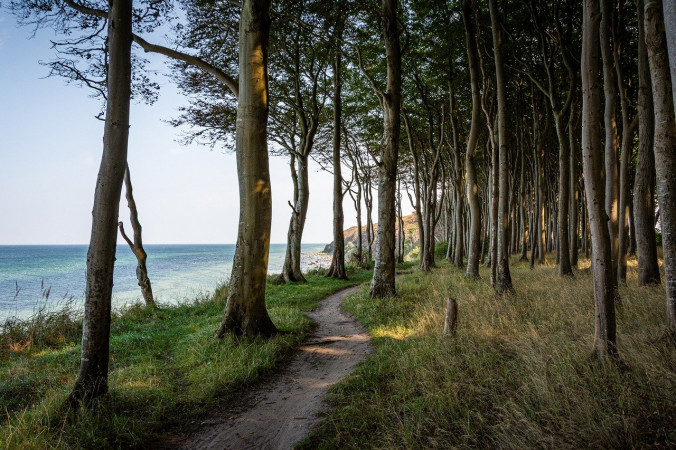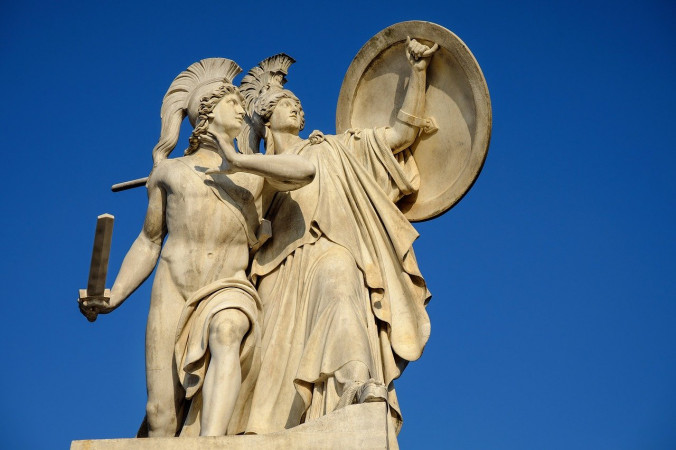Hi User
Navigation
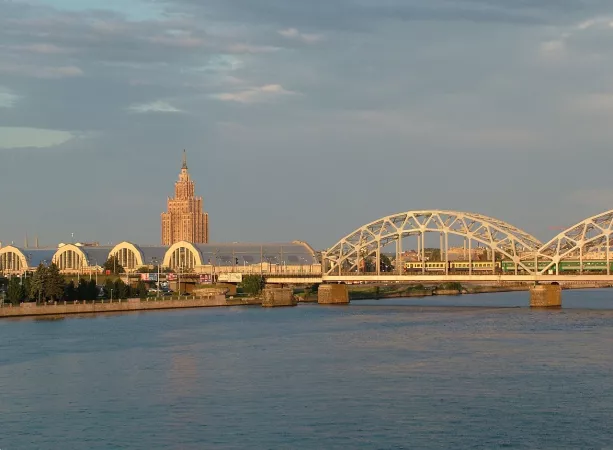
Latvia
Duration
3 to 7 Days
3 to 7 Days
Best time to visit
Jun-Aug
Jun-Aug
Theme
Hill Station
Hill Station
Latvia Travel Guide
Latvia, a Baltic country in Northern Europe, is known for its stunning natural landscapes, rich history, and vibrant culture. Situated between Lithuania and Estonia, Latvia boasts a diverse terrain of forests, lakes, and sandy beaches along the Baltic Sea. With a history dating back to medieval times, Latvia has a unique blend of influences from various conquerors and rulers, making it a fascinating destination for history buffs.Top Attractions in Latvia
- Riga Old Town
- Gauja National Park
- Jurmala Beach
- Sigulda Castle
- Kemeri National Park
Latvia is Famous for
Riga, the capital city of Latvia, is famous for its well-preserved medieval architecture and Art Nouveau buildings, making it a UNESCO World Heritage Site.Top Attractions in Latvia
- Exploring Riga's Old Town
- Hiking in Gauja National Park
- Relaxing on Jurmala Beach
- Visiting the historic Sigulda Castle
- Experiencing the natural beauty of Kemeri National Park
What's Great about Travelling to Latvia?
- Rich cultural heritage
- Beautiful natural landscapes
- Charming medieval towns
- Warm and welcoming locals
What's Not So Great about Travelling Latvia?
- Cold winters
- Limited English spoken outside major cities
- Some areas can be touristy
- Public transportation may be unreliable
Travel Tips for Latvia
- Check visa requirements before traveling
- Use public transportation or rent a car for flexibility
- Stay cautious of pickpockets in crowded tourist areas
- Respect local customs and traditions
Important Latvia trip information
- Ideal Duration: A week to 10 days is ideal to explore the main attractions.
- Best Time to Visit: May to September for pleasant weather.
- Nearby Airports and Railway Stations: Riga International Airport, Riga Central Station.
Popular Latvia Tour Packages From:
Budget Latvia Tour Packages Under:
7 days & 6 nights
4.3 (400)
6N/7D Estonia, Latvia & Lithuania Tour Package
1D Parnu • 1D Riga • 1D Tallinn • 1D Trakai • 3D Vilnius
Tour package by TripClap
Verified Trustseal
INR 72,059 /Adult
11 days & 10 nights
4.3 (400)
10N/11D Estonia, Latvia, Lithuania, Poland & Berlin Tour Package
1D Augustow • 1D Berlin • 1D Parnu • 1D Poznan • 1D Riga • 1D Tallinn • 1D Trakai • 1D Vilnius • 3D Warsaw
Tour package by TripClap
Verified Trustseal
INR 155,100 SAVE INR 46,530
INR 1,08,570 /Adult
9 days & 8 nights
4.3 (400)
8N/9D Estonia, Latvia, Lithuania & Warsaw Tour Package
1D Augustow • 1D Parnu • 1D Riga • 1D Tallinn • 1D Trakai • 1D Vilnius • 3D Warsaw
Tour package by TripClap
Verified Trustseal
INR 107,947 SAVE INR 16,192
INR 91,755 /Adult
13 days & 12 nights
4.3 (400)
12N/13D Estonia, Latvia, Lithuania, Poland, Berlin & Prague Tour Package
1D Augustow • 1D Berlin • 1D Dresden • 1D Parnu • 1D Poznan • 1D Prague • 1D Riga • 1D Tallinn • 1D Trakai • 1D Vilnius • 3D Warsaw
Tour package by TripClap
Verified Trustseal
INR 167,819 SAVE INR 41,955
INR 1,25,864 /Adult
12 days & 11 nights
4.3 (400)
11N/12D Stockholm, Finland & Lithuania Tour Package
1D Augustow • 1D Helsinki • 1D Naantali • 1D Parnu • 1D Riga • 1D Sigulda • 1D Stockholm • 1D Tallinn • 1D Trakai • 1D Turku • 1D Vilnius • 1D Warsaw
Tour package by TripClap
Verified Trustseal
INR 159,899 SAVE INR 23,985
INR 1,35,914 /Adult
15 days & 14 nights
4.3 (400)
14N/15D Stockholm, Finland, Lithuania & Berlin Tour Package
1D Augustow • 1D Berlin • 1D Helsinki • 1D Naantali • 1D Parnu • 1D Riga • 1D Sigulda • 1D Stockholm • 1D Tallinn • 1D Trakai • 1D Turku • 1D Vilnius • 3D Warsaw
Tour package by TripClap
Verified Trustseal
INR 229,839 SAVE INR 68,952
INR 1,60,887 /Adult
FAQ's on Latvia
Q1: What is the best time to visit Latvia?
The best time to visit Latvia is during the summer months from June to August when the weather is mild and pleasant for outdoor activities. This is also the peak tourist season with many cultural events, festivals, and long daylight hours. Spring and autumn offer beautiful landscapes with colorful foliage, but the weather can be unpredictable. Winter is perfect for winter sports enthusiasts with snow-covered landscapes and traditional winter festivities.
Q2: Do I need a visa to travel to Latvia?
Visitors from the EU, the Schengen Area, the US, Canada, Australia, and many other countries do not need a visa to enter Latvia for short stays up to 90 days. However, it is essential to check the specific visa requirements based on your nationality before traveling to Latvia. Make sure your passport is valid for at least three months beyond your intended stay.
Q3: What are the must-visit attractions in Latvia?
Latvia offers a diverse range of attractions, including the historic Old Town of Riga, a UNESCO World Heritage Site, with its stunning architecture and vibrant atmosphere. Other must-visit places include the charming seaside town of Jurmala, the fairytale-like Turaida Castle, the picturesque Gauja National Park, and the unique Rundale Palace. Nature lovers can explore the beautiful beaches of the Baltic Sea, the scenic Latvian countryside, and the tranquil forests.
Q4: Is Latvia a safe place to travel?
Latvia is generally a safe country for travelers. However, like any other destination, it is advisable to take normal precautions to ensure your safety. Avoid poorly lit areas at night, be cautious of pickpockets in crowded places, and keep an eye on your belongings. It is also recommended to have travel insurance that covers medical expenses and emergencies during your stay in Latvia.
Q5: What is the local currency in Latvia and can I use credit cards?
The local currency in Latvia is the Euro (€). Credit cards are widely accepted in hotels, restaurants, shops, and major tourist attractions. ATMs are also readily available in cities and towns for cash withdrawals. It is advisable to inform your bank of your travel plans to avoid any issues with using your credit or debit cards abroad.
Q6: What is the local cuisine like in Latvia?
Latvian cuisine is influenced by traditional Baltic, Scandinavian, and Russian flavors. Must-try dishes include grey peas with bacon, Latvian rye bread, smoked fish, speķa pīrāgi (bacon pastries), and the famous Latvian dessert, rye bread soup. For meat lovers, try the hearty Latvian sausage, grilled pork, and game dishes. Vegetarians can enjoy various mushroom and potato dishes. Don't miss out on sampling local beers, black balsam liqueur, and herbal teas.
Q7: What transportation options are available in Latvia?
Latvia has a well-developed transportation network with options such as buses, trams, trolleybuses, and trains connecting major cities and towns. Taxis are also available, especially in urban areas and can be hailed on the street or booked through apps. Renting a car is a convenient way to explore the countryside and remote areas. Cycling is popular in Latvia, with dedicated bike lanes in many cities. Ferries operate between Riga and neighboring countries for sea travel.
Q8: Are there any cultural norms or etiquette I should be aware of when visiting Latvia?
When visiting Latvia, it is essential to greet people with a firm handshake and maintain eye contact. Latvians appreciate punctuality, so it is polite to arrive on time for appointments and meetings. When dining, wait for the host to offer a toast before taking a sip of your drink. Dress modestly when visiting churches or religious sites. It is customary to remove your shoes before entering someone's home. Respect the natural environment by not littering and following designated trails when hiking. Learn a few basic Latvian phrases to show respect for the local language and culture.
Q9: I am a travel agent. How can I buy travel leads of Latvia?
Register yourself as a travel agent at agents.tripclap.com and then you can buy travel leads to Latvia once your account is approved. For more details contact our support team at +91-8069186564 or support@tripclap.com
Certified
We accept (more)
Members of
Media Recognition
Trusted Partners
Award
Copyrights © TripClap. All Rights Reserved

